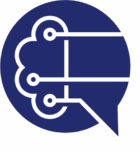Please be aware that the following content was generated using Artificial Intelligence (AI).
Non-directive coaching, a method that puts the emphasis on the individual rather than the coach, is gaining traction in the realm of personal and professional development. This approach is rooted in humanistic psychology, which asserts that each person possesses the intrinsic ability to realise their potential. Grounded in the belief that people are naturally motivated and capable of growth, non-directive coaching encourages coachees to explore their thoughts, emotions, and goals in a supportive environment.
At the heart of non-directive coaching is the work of Carl Rogers, a pioneering psychologist who emphasised the importance of empathy, active listening, and unconditional positive regard in facilitating personal growth. Rogers believed that a non-directive approach empowers individuals to discover their own solutions, rather than relying on external guidance. This philosophy contrasts sharply with directive coaching methods, where the coach leads the coachee towards a predetermined solution. By allowing coachees to chart their own course, non-directive coaching has been shown to foster a sense of ownership and accountability.
Research supports the effectiveness of non-directive coaching in various contexts. A study published in the Journal of Consulting and Clinical Psychology demonstrated that individuals who engage in non-directive coaching exhibited greater self-efficacy and goal attainment compared to those who participated in directive coaching sessions. This finding aligns with the psychology of coaching, which tells us that when individuals feel empowered to navigate their own challenges, they are more likely to experience a lasting impact.
Moreover, non-directive coaching paves the way for deeper self-reflection, which is crucial for personal growth. Through open-ended questions and active listening, skilled coaches create a safe space for exploration. A study conducted by the International Coach Federation found that 70% of coachees reported improved self-awareness as a direct outcome of their coaching experience. By encouraging individuals to delve into their thoughts and feelings, non-directive coaching ultimately helps them gain clarity on their goals and aspirations.
In addition to boosting self-awareness, the benefits of non-directive coaching include enhanced decision-making skills and increased emotional intelligence. Research shows that when individuals engage in reflective practices, such as those fostered in non-directive coaching, they become better equipped to make informed decisions. They learn to assess their values, beliefs, and potential outcomes based on their own insights. Consequently, this method proves particularly effective for those in positions of leadership, where decision-making is paramount.
Understanding the psychology behind non-directive coaching is essential in recognising its place within the larger framework of organisational development. As businesses pivot towards cultivating coaching cultures, the impact of non-directive coaching can be profound. This approach not only aligns with organisational goals of employee engagement and retention but also contributes to a more resilient and adaptive workforce.
From a practical standpoint, the scalability of non-directive coaching is a game changer, especially when integrated with AI technology. By utilising AI-driven platforms like AIcoach.chat, organisations can offer bespoke non-directive coaching experiences tailored to their unique corporate context. This enables employees to engage in meaningful conversations that align with company values, strategic goals, and competency frameworks. Importantly, AI coaching does not compromise on the principles of solidarity and empathy that characterise effective non-directive coaching; rather, it enhances access and affordability.
The perceived barriers and concerns surrounding the adoption of AI in coaching often stem from a lack of understanding of its capabilities. However, research indicating consistent positive outcomes from non-directive coaching suggests that fear of lower quality is unfounded. In fact, AI coaching can complement human-led initiatives, creating a hybrid model that maximises the advantages of both approaches. Additionally, AI-driven coaching platforms can offer anonymity, allowing coachees to engage in honest reflections without fear of judgement, further elevating the effectiveness of coaching conversations.
As we continue to explore the benefits of non-directive coaching, it is important for organisations to consider the potential for improving employee engagement via innovative solutions. Moving away from traditional survey methods, which often fail to capture the full spectrum of employee sentiment, non-directive coaching facilitates real-time feedback and insights. By analysing the aggregated data from coaching conversations, companies can glean valuable information about the topics that resonate with their workforce, ultimately informing strategic decisions.
In conclusion, the science behind non-directive coaching illustrates its effectiveness in fostering self-awareness, enhanced decision-making, and personal accountability. By empowering individuals to explore their own thoughts and aspirations, this coaching approach aligns seamlessly with the principles of humanistic psychology. The integration of AI technology into the coaching realm not only amplifies these benefits but also opens up new pathways for widespread access to coaching in organisational settings.
As you consider the role of coaching in your organisation, it’s time to explore the transformative potential of non-directive coaching powered by AI. Discover the research behind AI coaching and witness how it can support your employees in reaching their goals. If you’re interested in learning more, consider booking a conversation or product demo. Together, we can build a coaching culture that empowers every individual to thrive.




